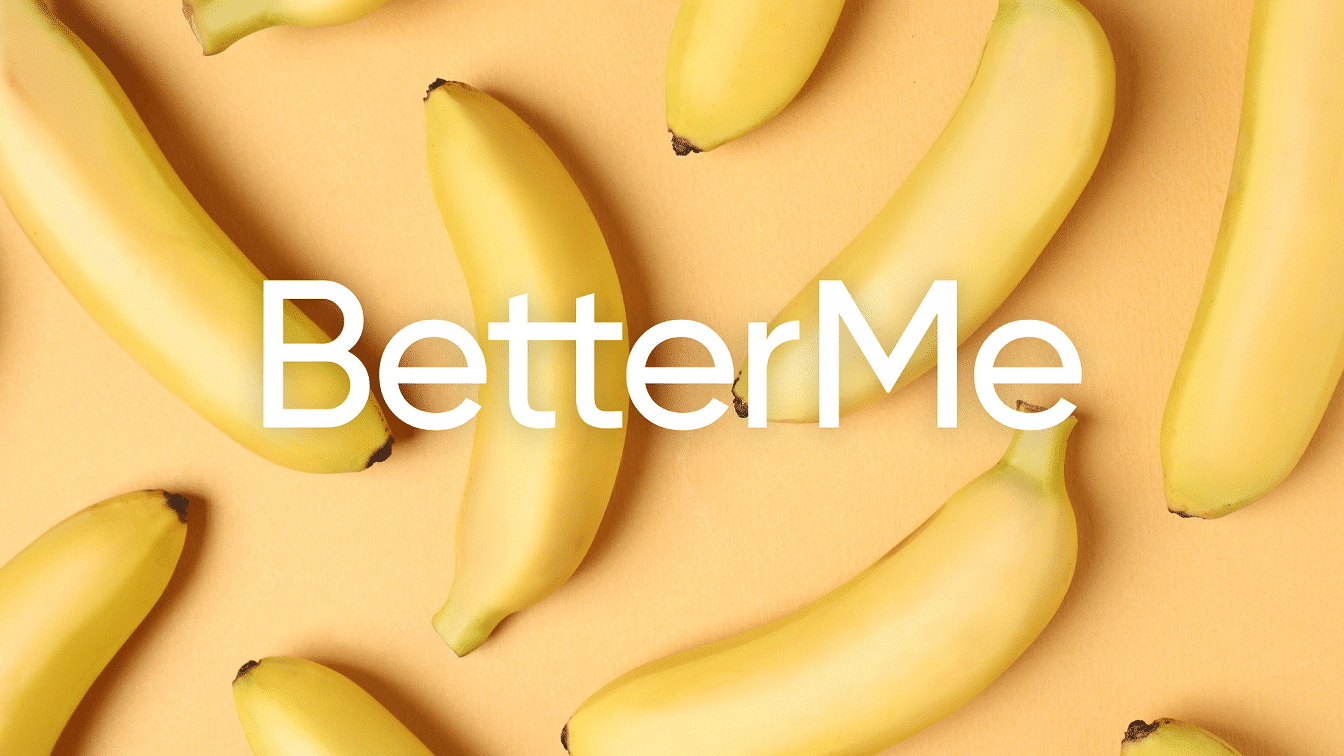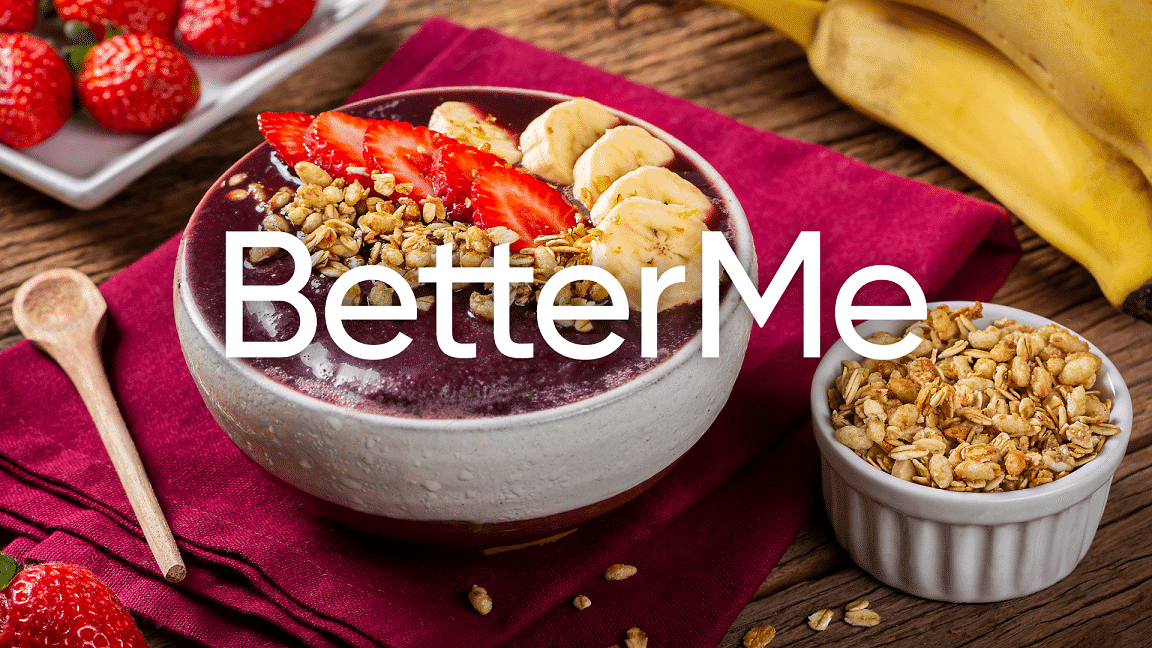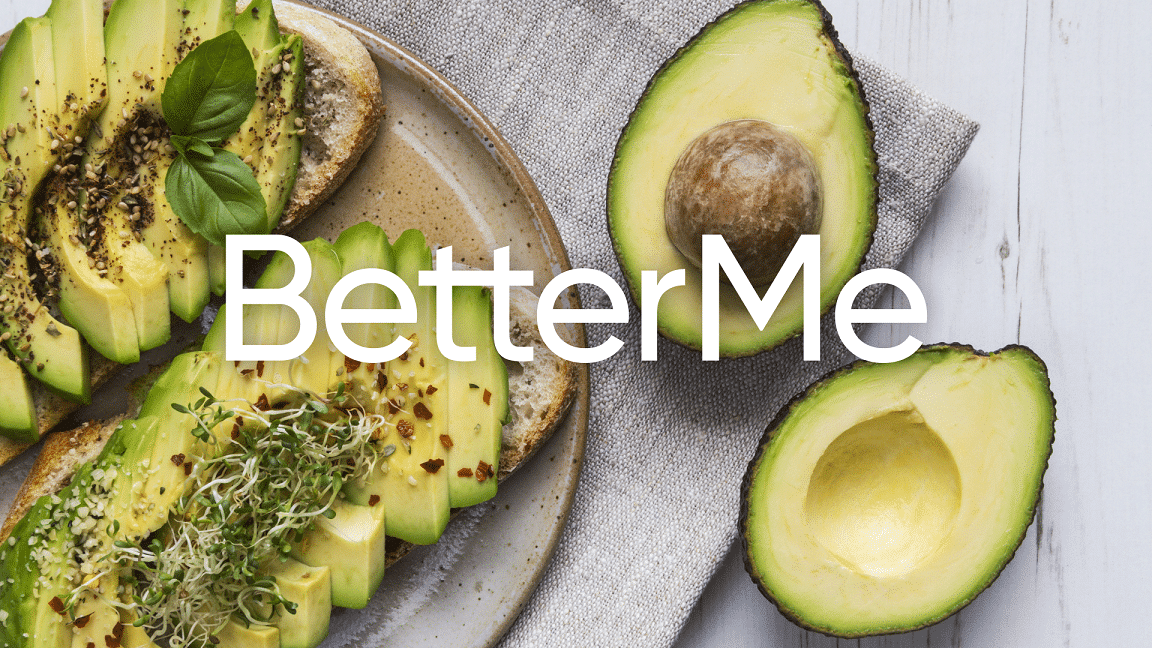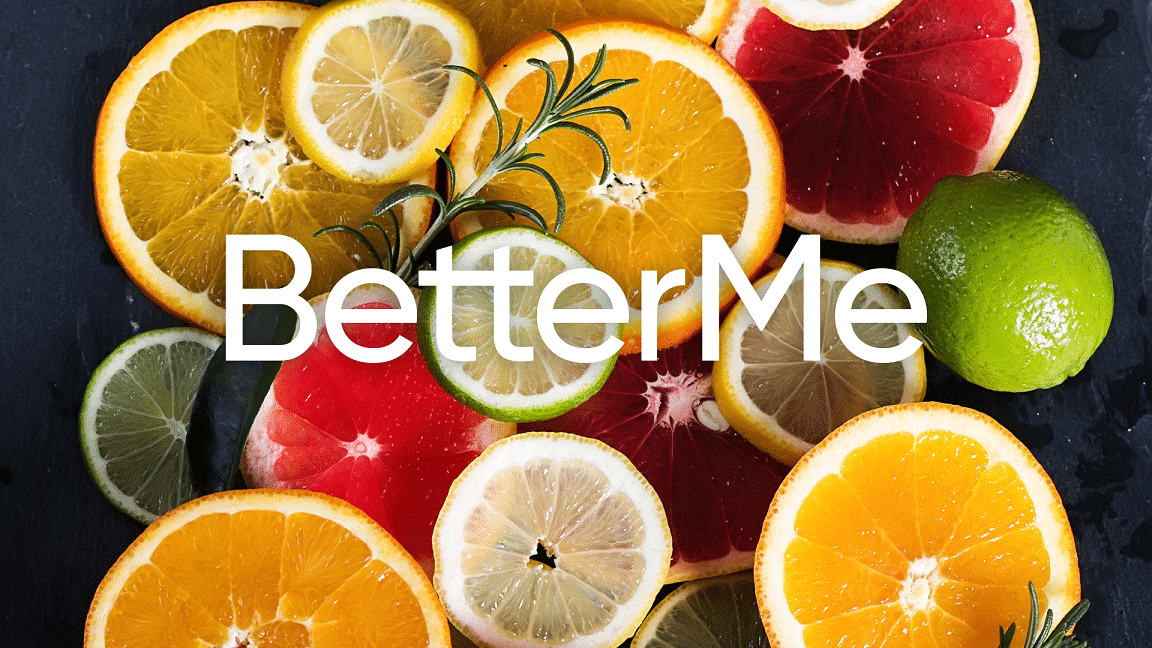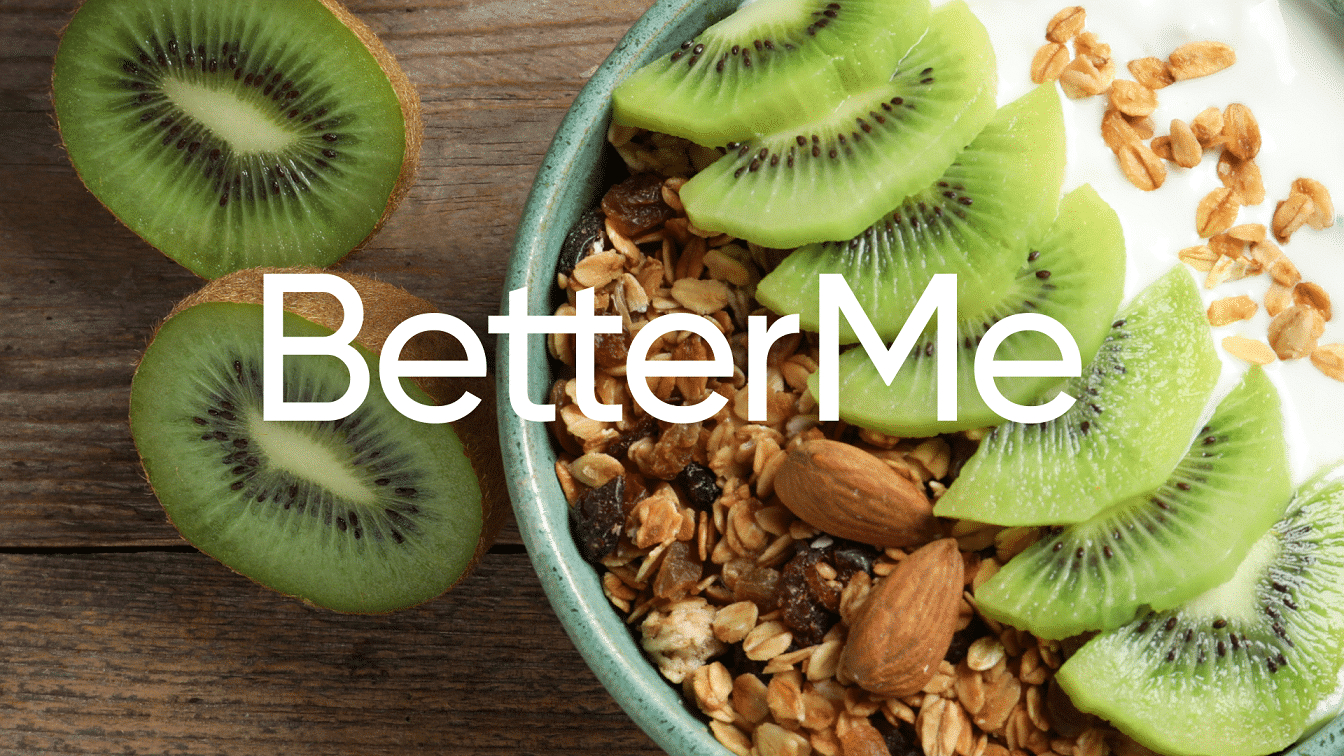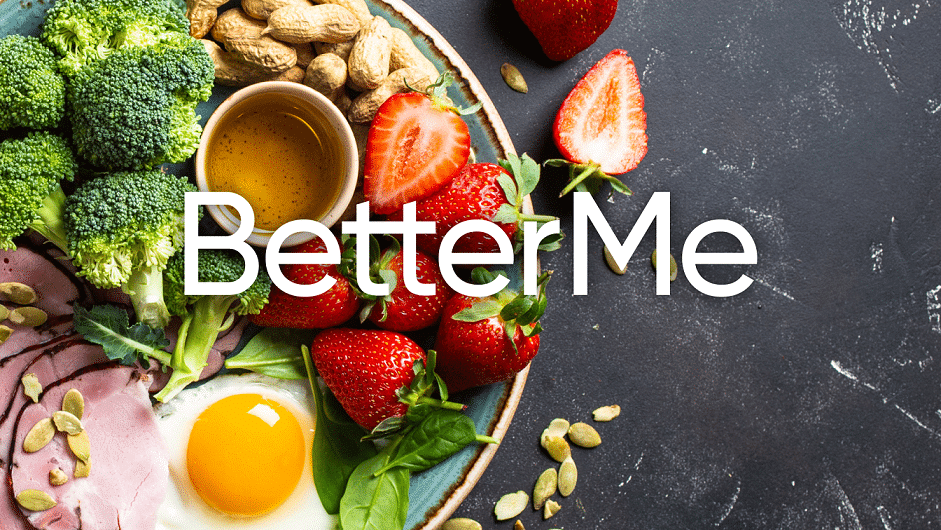What is a super fruit? Is it a term referring to exotic or expensive fruits? Here are just a couple of the questions many ask when the term super fruit is used. A super fruit is a fruit that has been deemed to be a nutritional powerhouse. It means it should be packed with nutrients, vitamins, fiber, antioxidants, and minerals to help you live healthier. Contrary to what you might think, most of these fruits are hidden in plain sight. With that said, in this article we will be unmasking some of the popular super fruits you must try if you want to live healthier, happier, and longer!
Get your personalized
meal plan!

List Of The Best Super Fruits
Do not be surprised to find your favorite fruit on this list. These super fruits are fruits you are used to consuming but perhaps couldn’t tell what their health benefits or nutritional contents were. Here is a collated list of popular super fruits that have been proven to be nothing less than dietary powerhouses. Take a look!
Bananas
In addition to being one of the most popular fruits globally, bananas are also among the most nutritious fruits. They are tasty and a powerhouse when it comes to nutrients. Due to their numerous health benefits, these fruits have been termed super fruits. Below are some of the benefits of consuming a banana:
Increased Potassium Intake
A medium-sized banana provides you with at least 13% of your daily potassium requirements (11). This mineral is vital in our bodies as it performs various roles. Some of these include (11):
- Managing your blood pressure by getting rid of excess sodium when you urinate.
- Reducing your risk of stroke.
- Assisting the functioning of your muscles.
- Preventing the development of kidney stones.
- Keeping your bones healthy as you age.
Increased Fiber Intake
It is no secret that we need fiber in our diet to prevent constipation. One medium-sized banana gives you roughly 3 g of fiber, which is approximately 10% of your daily fiber needs (11).
The soluble fiber in bananas helps with controlling both your cholesterol and blood pressure levels. Consequently, you may be able to reduce your risk of the cardiovascular diseases caused by high cholesterol levels and high blood pressure. It also helps in easing inflammation (11).
If you’ve mustered up the courage to crush your weight loss goal, let Betterme take the sting out of this demanding process. Our app will help you restructure your habits, remold your life and crank up your fitness results!
Happier Belly
These tasty fruits are not only good for satisfying your sweet tooth, but also for giving you a happier belly. It is because they contain prebiotics. These are non-digestible fibers that feed the good bacteria t in your gut.
WebMD also states that these good bacteria may help in (11):
- Lessening lactose intolerance
- Treating a couple of gastrointestinal infections
- Improving yeast and urinary tract infections (UTIs)
- Easing irritable bowel syndrome (IBS)
- Reducing the severity of various colds and cases of flu
- Relieving some allergy symptoms
Weight Loss
You might have noticed that most weight loss diet plans recommend the consumption of bananas. It could be in a weight loss smoothie, in breakfast oats, or as snacks. However you choose to consume them, the fact remains that bananas can help in promoting weight loss.
According to Medical News Today, this is made possible due to their high fiber content. Increased fiber intake keeps you full for longer, which is helpful in limiting the number of calories you eat (5). As we all know, you need to consume fewer calories than your body burns for you to shed pounds. Eating a banana can help you maintain a calorie deficit due to increased satiety.
Nutritional Profile
There is more to a banana than we know. Most of us can only guess that bananas provide us with potassium. However, the nutrients acquired from consuming a banana are endless. Take a look at the nutritional content of a medium-sized banana (4):
- Calories- 105
- Protein- 1.3 g
- Fiber- 3.1 g
- Carbohydrate- 27 g (inclusive of 14.4 g of sugar)
- Magnesium- 31.9 g
- Choline- 11.6 g
- Phosphorus- 26 mg
- Potassium- 422 mg
- Selenium- 1.9 mcg
- Folate- 23.6 mcg DFE
- Beta-carotene- 30.7 mcg
- Vitamin C- 10.3 mg
- Alpha-carotene- 29.5 mcg
Ways Of Serving Or Eating Bananas
Most of us eat a banana as it is, especially when we are looking for sweet snack options. There is nothing to this. However, you can elevate how you eat or serve these fruits by combining them with other foods. Here are examples of how you can achieve this (11):
- Slicing your banana and adding it to your morning cereals or oatmeal.
- Adding it to your smoothies.
- Mashing them into cakes, cookies, or muffins for a naturally sweet flavor.
- Mashing and using them to replace oil or butter when making baked goods.
Read More: Are Bananas Good For Weight Loss: Don’t Let Their Carb Content Put Your Off
Apples
Apples are another popular super fruit that are loved for their richness in fiber, antioxidants, vitamins, and other nutrients. They may vary in terms of colors and flavors, but nothing beats the fact that they are healthy.
Before discussing the health benefits associated with consuming apples, let us first evaluate their nutritional content. According to Medical News Today, a medium-sized raw apple weighing roughly 182 g has the following nutrients (14):
- Calories- 94.6
- Fiber- 4.4 g
- Carbohydrate- 25.1 (inclusive of 18.9 g of sugar)
- Potassium- 195 mg
- Calcium- 10.9 mg
- Magnesium- 9.1 mg
- Phosphorus- 20 mg
- Folate- 5.46 mcg
- Vitamin C- 8.37 mg
- Choline- 6.19 g
- Vitamin K- 4 mcg
- Beta-carotene- 49.1 mcg
- Lutein and zeaxanthin- 52.8 mcg
- Decent traces of iron, vitamins E, B, and A.
All these nutrients contribute to the health benefits of eating apples. They include:
Reduced Cholesterol Levels
Eating raw apples has been shown to reduce low-density lipoprotein (LDL) levels that may increase your risk of heart disease (9). The fiber present in apples may help in the reduction of these “bad” cholesterol levels.
Improved Heart Health
Reduced cholesterol levels go hand-in-hand with a boost heart health as a result of the reduced risk of cardiovascular diseases. The vitamin C acquired from eating apples also supports your immune system which protects your body against various diseases and infections.
By association, this may help in defending your body against heart-related diseases and infections. Likewise, you also acquire potassium from apple consumption. This mineral relaxes your blood vessels and reduces high blood pressure risk and other heart complications (14).
Obesity Management
According to a study in rodents, apples have bioactive compounds that may promote healthy gut bacteria, which may help in optimizing the health of individuals with obesity.
Similarly, the high fiber content acquired from consuming apples can help with reducing your obesity risk. Fiber helps with making you feel full for longer, reducing your chances of overeating and over-snacking (1).
Reduced Stroke Risk
A large cohort study found that people who ate apples regularly had a lower risk of thrombotic stroke. The reduced stroke risk is likely due to the numerous beneficial nutrients found in apples, including fiber (10).
Eating Apples
There are numerous ways you can choose to consume these super fruits. You can choose to eat them raw, blend them in a smoothie, or chop them in salads. You can also choose to cook them to make applesauce, bake them in pies, or juice them for apple juice.
Before you choose any of the above recipes, be sure to seek medical advice. For some, eating these fruits may result in bad allergies, choking, and toxins (14). If you experience any of the following after eating apples, get medical attention immediately.
Reasons why BetterMe is a safe bet: a wide range of calorie-blasting workouts, finger-licking recipes, 24/7 support, challenges that’ll keep you on your best game, and that just scratches the surface! Start using our app and watch the magic happen.
Avocados
When you look at the list of the healthiest fruits and vegetables, you will hardly miss avocados. These super fruits are rich in the vital vitamins and minerals that your body needs for proper functioning. Here is an overview of the nutrients found in 100 g serving (half) of avocado (6):
- Calories- 160
- Water- 73%
- Folate- 81 mcg
- Vitamin E- 2.07 mg
- Magnesium- 29 mg
- Choline- 14.2 mg
- Vitamin A- 7 mcg
- Niacin- 1.74 mg
- Vitamin K- 21 mcg
- Copper- 0.19 mg
- Vitamin B-5- 1.39 mg
- Vitamin B-6- 0.26 mg
- Riboflavin- 0.13 mg
- Manganese- 0.14 mg
- Zinc- 0.64 mg
- Thiamine- 0.07 mg
- It also contains plant compounds such as carotenoids and persenones A and B.
By looking at this nutritional profile, it is irrefutable that avocados are a powerhouse of plant compounds, vitamins, and minerals. This might explain the numerous health benefits associated with eating avocados, some of which include:
Satiety And Weight Loss
Most weight watchers believe that they have to keep away from avocados due to their high-fat content. However, remember that you still need healthy fats in your body, and avocados are excellent sources of these fats.
Again, avocados have high fiber content which has been shown to increase satiety. This is to say, the more full you feel, the less you eat, and the less likely you are to consume more calories than you are burning. Avocados are also great food choices if you want to drop pounds for several reasons. These include the fact that they have low carbs, low calories, and they do not spike your blood sugar levels (6).
Reduced Risk Of Several Health Conditions
WebMD acknowledges that eating avocados may reduce the risk of diseases such as cancer, arthritis, depression, high blood pressure, and osteoporosis (3). According to this site, the benefit is achieved due to the nutrients found in avocados.
To begin with, the folate attained from avocados helps with lowering colon and prostate cancer risk. Similarly, the vitamin K present in these fruits boosts your bone health by reducing bone loss, hence warding off osteoporosis. The potassium in these fruits also lowers sodium levels, reducing high blood pressure risk.
Increased Folate Intake
During pregnancy, women require at least 400 mcg of folate to help prevent congenital disabilities in the baby’s spine and brain. Eating just one avocado provides you with 41% of your folate needs (3).
Ways Of Eating Avocados
There are some excellent ways you can add these fruits to your diet. Some of these include adding them to your healthy salads, salsa, and soup. If not in these ways, you can always consider them as an ingredient for your smoothies.
Medicine Net also recommends you to use avocados as a spread instead of mayonnaise or butter (2). The site also suggests using an avocado mash in place of sour cream in dips or preparing guacamole. Although safe to eat, remember to seek medical attention if you have an avocado allergy or have problems consuming foods with FODMAPS.
Read More: How To Eat Avocado For Weight Loss: Eating Fat To Burn Fat
Oranges
An orange is also another best fruit to have if you are looking for healthy fruits to add to your diet. These citrus fruits are widely known for their richness in vitamin C. However, they do provide other nutrients. Here is the nutritional content of an orange weighing 141 g (12):
- Calories- 65
- Carbohydrate- 16.27 g
- Fiber- 3.4 g
- Calcium- 61 mg
- Magnesium- 14 mg
- Vitamin C- 63.5 mg
- Potassium- 238 mg
This super fruit does more than pack your body with all these nutrients. Eating these nutritious fruits can also help you reap the following benefits (12):
- Boosted immune functioning. The vitamin C obtained from oranges helps boost immune system functioning by increasing the body’s ability to absorb iron from plant-based foods.
- Reducing cancer risk. Oranges with high pectin levels help in keeping the colon healthy by removing cancer-causing chemicals.
- Maintaining healthy skin and eyesight. The vitamin A present in oranges helps in the maintenance of good vision and healthy skin.
- Maintaining a healthy reproductive and nervous system. The B vitamins and folate present in these fruits help keep these systems healthy and are needed to create red blood cells.
If you do not want to eat oranges as a snack, blend or juice them to have some refreshing orange juice. You can also grate the peel into your yogurt, salad, or cereal for more flavors.
Kiwi
Another best fruit for you is kiwi. Do not be fooled by its small size. This fruit is packed with numerous nutrients. One kiwi weighing 69 g has the following nutrients (13):
- Calories- 42.1
- Fiber- 2.1 g
- Carbohydrate- 10.1 g (including 6.2 g of sugar)
- Magnesium- 11.7 mg
- Calcium- 23.5 mg
- Phosphorus- 23.5 mg
- Potassium- 215 mg
- Copper- 90 mcg
- Vitamin C- 64 mcg
- Folate- 17.2 mcg
- Beta-carotene- 35.9 mcg
- Vitamin E- 1 mg
- Lutein and zeaxanthin- 84.2 mcg
- Vitamin K- 27.8 mcg
All these nutrients present in this fruit may benefit you in the following ways (13):
- Improved skin. The vitamin C in kiwi is involved in the production of collagen that helps the body heal wounds and maintain healthy skin.
- Better sleep. The antioxidants and serotonin found in these fruits may improve your sleep quality, helping you get better rest.
- Improved heart health. Kiwi has potassium, antioxidants, and fiber that support heart health by reducing blood pressure and the risk of cardiovascular diseases.
- Kidney stone prevention. The high potassium intake obtained from eating kiwi may prevent kidney stones from forming.
- Improved bone health. Kiwi contains a decent amount of vitamin K that may help prevent osteoporosis. Similarly, it contains phosphorus and calcium, which are essential minerals for bone health.
Adding Kiwi To Your Diet
These super fruits have distinct tartness, which gives any kiwi pairing a bold flavor. As such, most people may prefer eating them raw. However, if you are looking for creative ways to serve this fruit, consider the following (8):
- Pairing kiwi with Greek yogurt for a light and refreshing dessert.
- Preparing a kiwi and banana fruit salad.
- Blending kiwi into a strawberry kiwi smoothie.
- Making a fruit cocktail with pineapple, kiwi, strawberry, and mango chunks.
- Making a green juice or smoothie with kiwi, pear, apple, and spinach.
Eating kiwi may cause adverse effects in people with kidney disease, a kiwi allergy, or who are taking certain medications such as beta-blockers (13). So, make sure you seek medical attention first before adding these fruits to your diet.
Strawberries
These sweet and slightly tart fruits are among the other healthy fruits to consider for healthy living. These super fruits are a nutritional powerhouse, which might explain their popularity in most diet plans. Take a look at the nutritional information of one cup (166 g) of sliced, fresh strawberries (7):
- Calories- 53 kcal
- Fiber- 3.3 g
- Protein- 1.11 g
- Folate- 40 mcg
- Vitamin A- 28 IU
- Calcium- 27 mg
- Iron- 0.68 mg
- Magnesium- 22 mg
- Phosphorus- 40 mg
- Potassium- 254 mg
- Vitamin C- 97.60 mg
The sweetness and unique nutritional profile of these berries should not be the only reason you add them to your diet. Here are some other solid reasons to consume strawberries (7):
- They may prevent cardiovascular diseases. These super fruits contain polyphenols, which are preventive plant compounds against heart disease.
- Berries may prevent stroke. They have antioxidants such as kaempferol, anthocyanin, and quercetin that may reduce stroke risk.
- They reduce blood pressure. These fruits can be great fruit options for people with high blood pressure. They have high potassium content that counteracts high sodium effects in the body, such as reducing blood pressure.
- They help with diabetes management. Fiber in strawberries helps in regulating the blood sugar of individuals with diabetes. Fiber also increases satiety, reducing snacking, thus supporting glucose management.
Adding Strawberries To Your Diet
There are numerous ways in which you can enjoy your strawberries. Some of the most common ones include (7):
- Dicing strawberries and adding them to your chicken salad.
- Adding sliced strawberries to your Greek yogurt together with sliced almonds and a drizzle of agave nectar.
- Preparing a fresh fruit cocktail using strawberries, pineapple, grapes, and peaches.
- Using these fruits as toppings for your oatmeal, pancakes, or waffles.
- Blending these super fruits to prepare a strawberry and banana smoothie.
- Mixing cut strawberries into a spinach salad with goat’s cheese and walnuts.
DISCLAIMER:
This article is intended for general informational purposes only and does not address individual circumstances. It is not a substitute for professional advice or help and should not be relied on for decision-making. Any action you take upon the information presented in this article is strictly at your own risk and responsibility!
SOURCES:
- Apple consumption is associated with a distinctive microbiota, proteomics and metabolomics profile in the gut of Dawley Sprague rats fed a high-fat diet (2019, journals.plos.org)
- Are Avocados Good for You? (2017, medicinenet.com)
- Avocado (2020, webmd.com)
- Benefits and health risks of bananas (2020, medicalnewstoday.com)
- Can bananas help you lose weight? (2019, medicalnewstoday.com)
- Everything you need to know about avocado (2020, medicalnewstoday.com)
- Everything you need to know about strawberries (2019, medicalnewstoday.com)
- Health Benefits of Kiwi (2020, webmd.com)
- Intake of whole apples or clear apple juice has contrasting effects on plasma lipids in healthy volunteers (2013, link.springer.com)
- Quercetin intake and the incidence of cerebrovascular disease (2000, nature.com)
- The Health Benefits of Banana (2020, webmd.com)
- Top 12 healthful fruits (2019, medicalnewstoday.com)
- What are the health benefits of kiwifruit? (2019, medicalnewstoday.com)
- What to know about apples (2019, medicalnewstoday.com)

